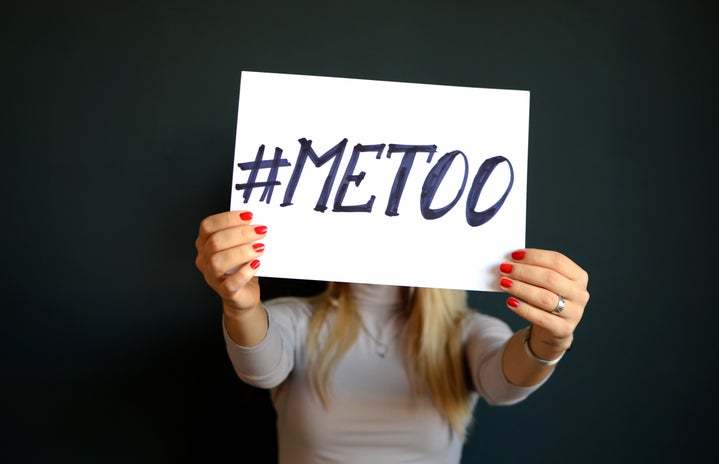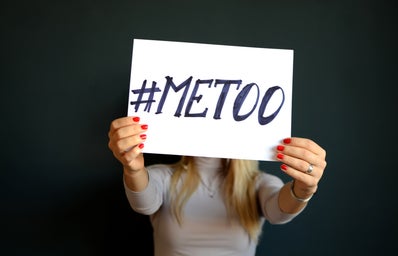September of my freshman year at Furman I was sexually assaulted. I was too drunk to give consent, and too drunk to stop things from happening once I got uncomfortable. It happened on a Saturday night, and a few days later I was called in to the Title IX office and questioned about what happened.
This is a very unusual experience. Most women feel afraid to report and sometimes spend weeks deciding whether to say anything. I assume after telling my roommate the night it happened, she told our RA (who is a mandated reporter), who had to report to the University.
Going into the office was scary, and difficult to recount the details of what had happened a few nights before. This was the first time I had someone look me in the eyes and tell me I had experienced sexual assault, then outline my options for reporting. Again, my situation was very unique, in that they had a substantial safety concern about my assailant, so they heavily encouraged me to report and take some sort of action.
Immediately after hearing my story they were telling me I should report to “make sure this didn’t happen to anyone else.” In hindsight, I of course am glad that they were so validating and supportive, and actually believed my story, something that doesn’t always happen for survivors. But in the moment, I honestly was terrified and didn’t know what to think or do.
I remember leaving the office so upset. Upset that I was truly assaulted and that I had to do something about it. I knew I would have to go through the pain so many more times and that scared me. But after some reflection, I decided I did want to go through with a Title IX University investigation (meaning that the consequences would be University sanctions and have nothing to do with the law).
One of the first steps was being interviewed for my statement. I had to go through every detail of the day and night, from what I had for lunch that day, to what I had to drink, to all the people I saw throughout the night. They asked how good of friends I was with each person mentioned and asked for specific details about everything. This of course was a very painful and difficult part of the process.
What was also difficult was that every person I mentioned was also called in for an interview to give their witness testimony to both the things I and my assailant claimed. There were many people who saw me that night, and now they all knew that something bad had happened between me and my perpetrator that particular night. In the end the witness statements helped tremendously in the final results of the trial, but at the time it was definitely difficult.
A few months later (at the end of the semester) was my hearing. I was sitting in one room, my assaulter in the other, and the hearing board and Title IX coordinator in a third. Every room had a laptop on video chat, with the camera pointed toward the hearing board (3 faculty members), where we could see them, and they could see us. The computer was there mostly just so that both me and the accused could be in our own respective rooms and not have to see each other, while still knowing what was going on in the main hearing room with the hearing board.
The hearing process consists of reviewing of the charges, a statement by both parties, a question and answer session from the hearing board (where each party can also send in questions), deliberation, and then the decision from the board.
Overall, the hearing process is difficult, especially hearing your perpetrator’s statement, but it is very nice that they separate everyone into different rooms to ensure you don’t see each other. Each party also gets a support person who can be with them during all parts of the process, which is also extremely helpful. I had my older sister there with me through everything, and I cannot stress enough how comforting it was to have someone I love there with me through such a difficult process.
In the end, my assailant was found guilty of sexual misconduct and sexual harassment and was expelled from Furman. This was a relief to know that my perpetrator was no longer on campus, but I truly didn’t go through such a long process just to punish him. I did it to stand up for myself and the dignity and respect that I, and every woman, deserves and to make sure he doesn’t have the chance to do this to anyone else on Furman’s campus.
If you are thinking about reporting to the Title IX office, I highly recommend just going in and talking to Melissa Nichols or Stephanie Boyd, both members of the Title IX team. You can go and tell your story and decide not to report, but they will keep your claim on file in case you ever decide to take action. Going through the process is long, difficult, and scary. But I will say it is much less intense than a criminal trial and gives you the opportunity to seek justice without having to go through lawyers and jury trials. But, each person has their own preference, and Furman Police are always an option for reporting.
Also, the Counseling Center, anyone in the student health center, or the Chaplain’s office are all confidential sources, which means you can talk to them about your experiences without it being reported to the University, if that is a route you would rather take. Whatever you choose is YOUR choice. YOU have the power here.
We all have a voice and we all matter. Never forget that.


